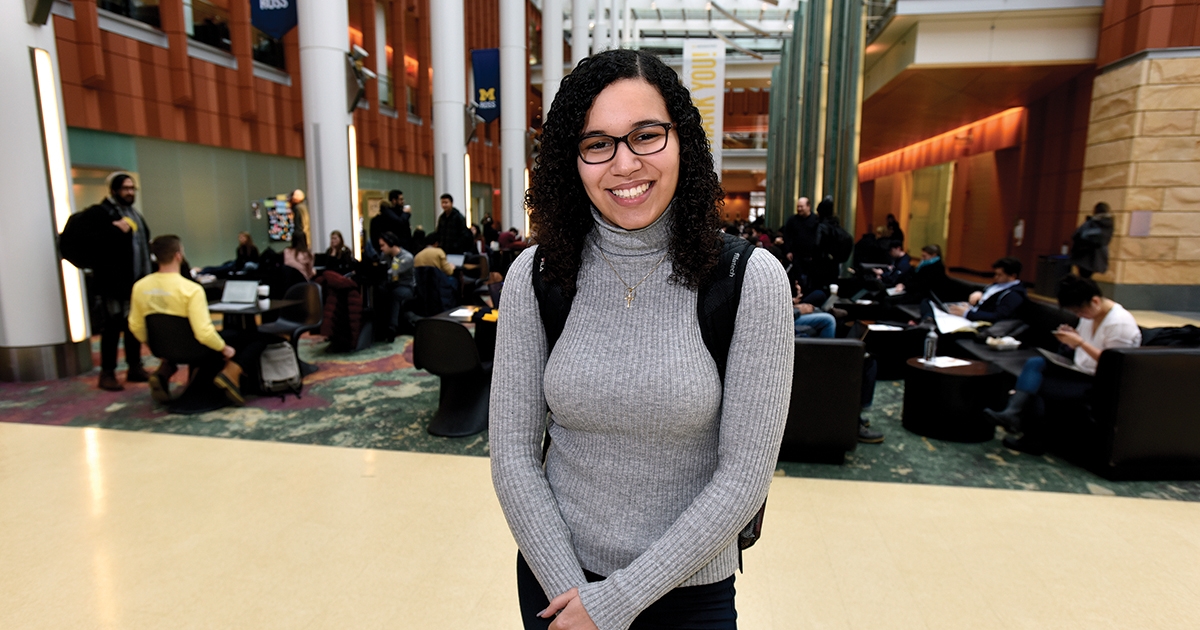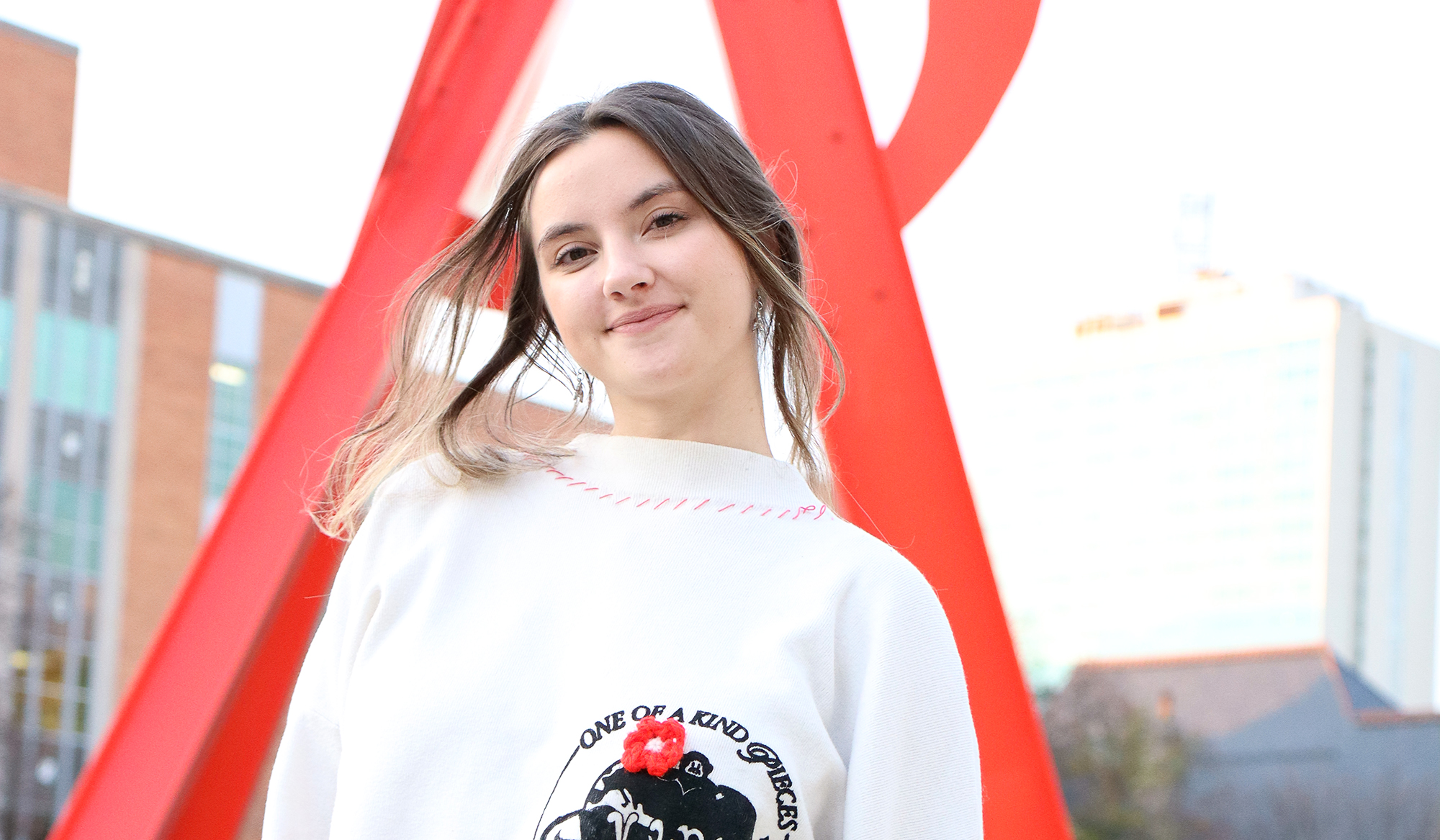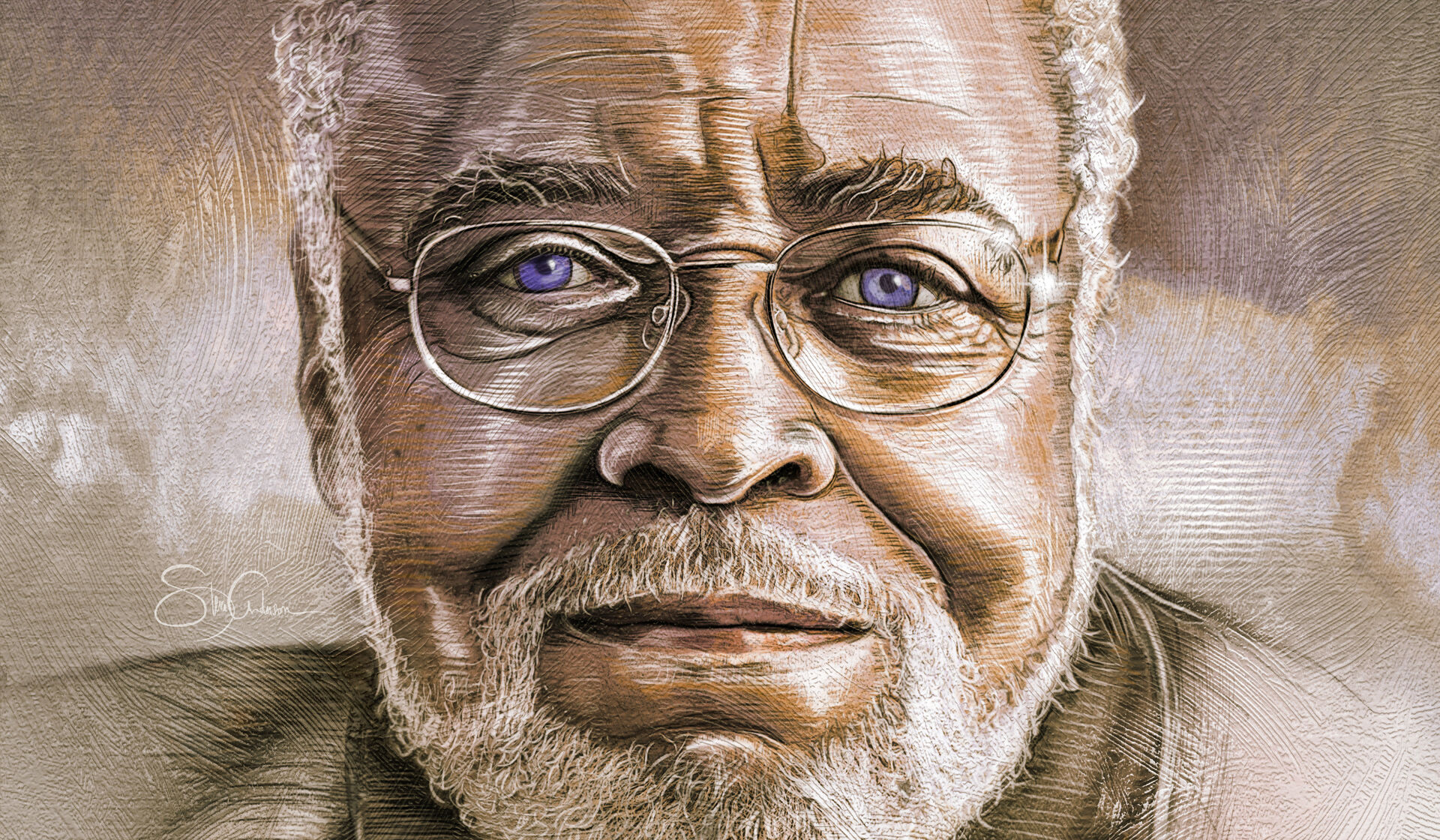PART 3: THE HOMESTRETCH
On Jan. 31, with temperatures outside plunging well below zero and classes canceled across the University, Tihnae Bennett hunkered down in her cozy room in West Quad, subsisting on instant oatmeal and noodles to avoid the frigid walk to the South Quad dining hall. The weather outside may have been miserable, but the unexpected break in a busy week offered a welcome a chance to catch up on laundry and homework.
“It is kind of nice,” she confessed, especially since (unlike many of her friends) she hadn’t caught a winter cold. “My dad and I always say that we have great immune systems, because we never get sick.”
Tihnae will need that fortitude as she enters the homestretch of her freshman year. In addition to a schedule that was already busy with classes, meetings, and time with friends, she is applying for a cross-campus transfer to the Ross School of Business. Despite her stellar academic record, the transfer is not a sure thing. She was not accepted when she initially applied; U-M enrolled her in LSA instead, offering her the chance to transfer once she had taken certain prerequisites. Good grades in those math and economics courses are essential, but a successful bid also calls for clear-eyed introspection as Tihnae writes essays explaining how a Ross education fits into her plans for the post-UM future.
“I’m still working on my outline, but I’ve always wanted to do something in business,” she said, explaining that the business courses she took at Kalamazoo Valley Community College while in high school revealed something fundamental about the world. “Business can be found in every aspect of life, and every job has some sort of business element to it.”
But if her interest is long-standing, her focus has evolved. Tihnae once envisioned herself working at a large corporation, a stable option for the daughter of working-class parents who hadn’t gone to college themselves. However, her social consciousness has grown over the course of her freshman year, and Tihnae is reconsidering her options. An American culture/sociology class, “Social Inequality,” has her thinking about the injustice of “people having so much money when there are other people who have no food,” and she is beginning to sketch out a way for her Ross education to help her help others.
“I’ve been really thinking about using my business skills at a nonprofit,” she said. “Where I come from, it was kind of rough growing up. But I’m at the University of Michigan, I made it to college—to a great school. So I want to give back, because I know how hard it is.”
Charities like Kalamazoo Gospel Mission, an emergency shelter in Tihnae’s hometown, were particularly inspiring, she said. “They provide somewhere homeless people can sleep at night, three meals a day, and hats and gloves and toothbrushes, other personal stuff. I think that we need more of that, because there are a lot of people who need help.”
While her family was far from wealthy, her parents worked hard, loved her, and did what they could to encourage her along her path to college. But Tihnae knows firsthand that there is only so much a person can accomplish without the support of the broader community.
“When you’re a first-generation college student, your family doesn’t really understand what your experiences are,” said Andarius R. Taylor, Tihnae’s academic adviser, who has been meeting with her regularly since she attended the prefrosh Summer Bridge Scholars Program. “For Tihnae, I think it’s been a roller coaster, adjusting to this environment, to the pressures of being a student at this level of institution.”
Taylor feels a kinship with his advisee, in part because he was also the first in his family to attend college. He knows it can sometimes be hard for such students to seek out opportunities on campus. (“You can find yourself in academic survival mode,” he said, “just trying to pass your classes.”) However, Tihnae was unusually proactive, taking advantage of the myriad resources U-M had to offer. That included his own advice—the two often talked through academic and personal challenges—and Bridge Scholars PLUS, a program focused on study skills, leadership, and self-knowledge. Tihnae also enrolled in a program called the “Preparation Initiative,” which assists freshmen with the transfer process into Ross as well as professional development advice and experience in a rigorous academic environment. The program connected Tihnae with peer coaches, Ross students who helped her with economics and math homework.
She also became deeply involved in her campus community, finding friendship and common cause in the Black Business Undergraduate Society, where a successful application landed her on the executive board, and in the Black Student Union, where she had earned a place on a trip to the annual Black Solidarity Conference.
“It’ll be a bus trip to Yale,” Tihnae said of the conference of African-American college students from around the country. “It’s only a certain number of students, so I had to apply. I got accepted, and usually freshmen don’t go—there’s only two freshmen going this year. But I go to a lot of meetings, and I’m on the community service committee, so I’m very involved.”
She was looking forward to bonding with fellow U-M students and networking with peers from across the country, but the expedition to Connecticut would also take her as far from home as she had ever been—a first step toward a lifelong goal of world travel.
“I love my family,” she said, “but I always wanted go out in the world and do big things—not only for myself, but for them. My family is my biggest motivation for everything, because they are so proud of me, and because they always knew I could do it.”
Amy Crawford is a freelance writer whose work has appeared in Smithsonian, The Boston Globe, and Nature Conservancy magazine. Follow her on Twitter @amymcrawf.
The LEAD Scholars Program provides scholarships to African-American, Hispanic, and Native American students who have been accepted into the U-M. Visit umalumni.com/LEAD to learn how you can support the program and, thus, help create a more diverse campus.





